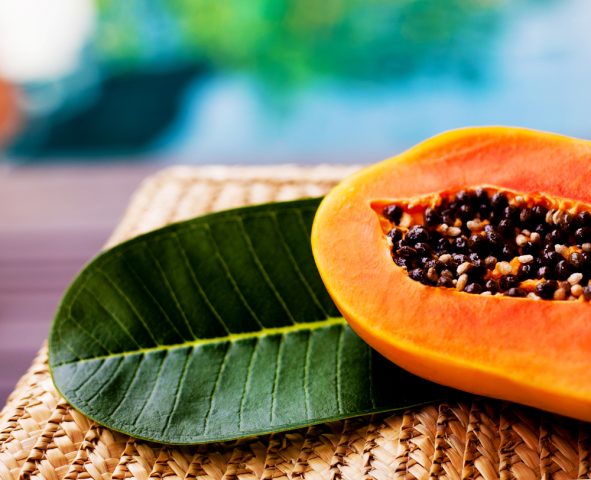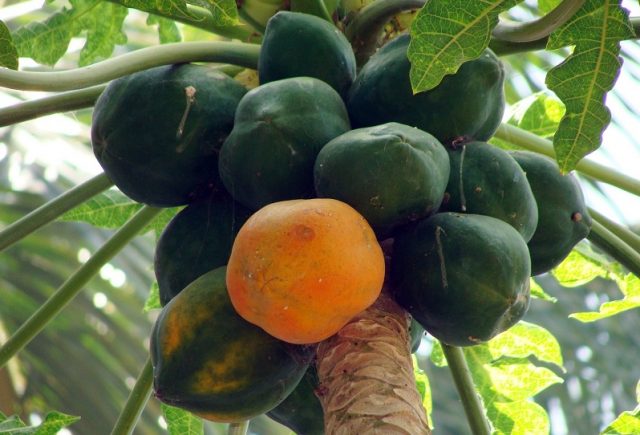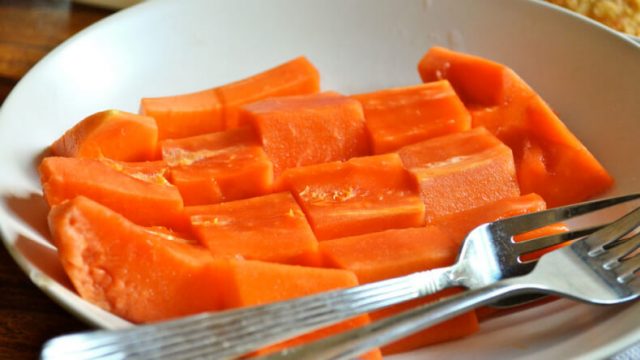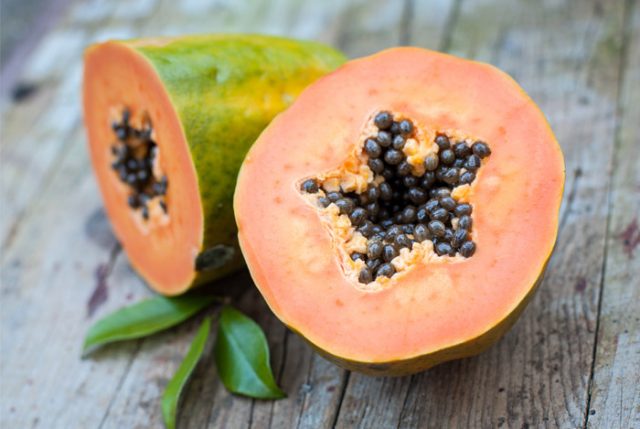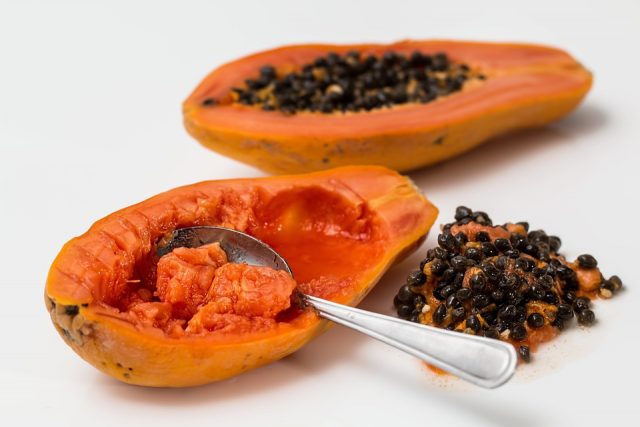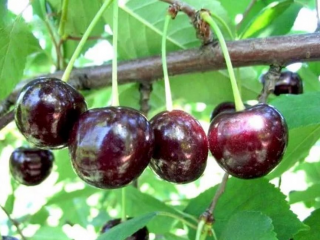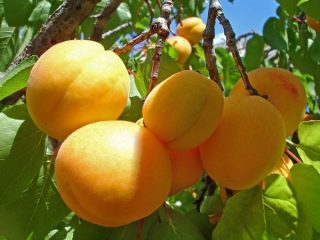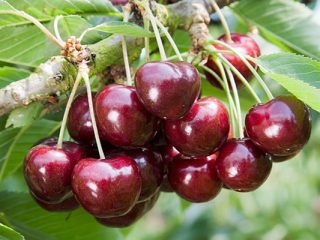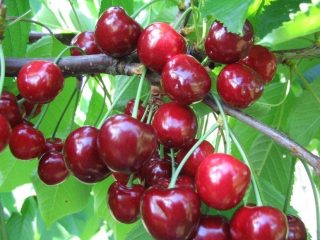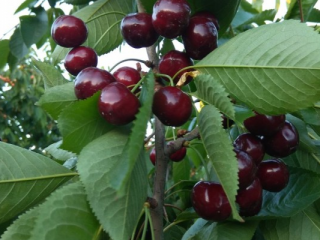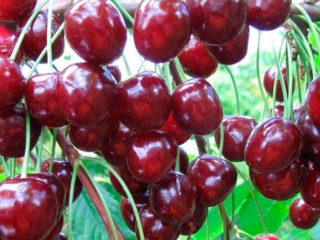Content
- 1 Where does the melon tree grow?
- 2 How papaya grows in nature
- 3 Useful properties of papaya
- 4 What are the benefits of papaya for the human body?
- 5 Can pregnant women eat papaya?
- 6 Papaya for breastfeeding
- 7 How is papaya used by humans?
- 8 Harm of papaya and contraindications
- 9 Papaya calories
- 10 Conclusion
The benefits and harms of papaya for the body are of interest to many lovers of exotic unusual fruits. To assess the effect of a product on health, you need to consider its chemical composition and basic properties.
Where does the melon tree grow?
Papaya, or melon tree, is a tropical plant native to Mexico, South America and Central America. At the same time, papaya is distributed throughout the world; it is currently grown artificially in almost all countries with a tropical climate.
The plant has increased sensitivity to temperature conditions and humidity, so it does not always take root in the subtropics. However, the melon tree is grown experimentally even in Russia - in the Crimea and the Caucasus, where the climate is most similar to the conditions familiar to the plant.
How papaya grows in nature
The melon tree is a plant with a rather unusual life cycle. In appearance, the tree is similar to a palm tree, but has fundamental differences. In particular, the papaya trunk does not become lignified during growth, although lignification is characteristic of most trees. At the core it remains filled with soft wood, which eventually simply dries out and disappears, causing the trunk to become hollow.
The absence of lignification ensures papaya very rapid growth - by the 3rd year of life, a melon tree can reach 6 m in height. The plant sometimes blooms 3 months after planting in the ground, and begins to bear fruit already in the first six months.
Useful properties of papaya
The health benefits and harms of papaya are quite diverse - the plant is valued not only for its pleasant taste and unusual appearance. If you include the product in your diet from time to time, it will be able to:
- have an anti-inflammatory and healing effect - consuming the fruit is useful for internal inflammation and skin damage;
- serve as a mild natural anthelmintic; the exotic fruit is used to get rid of parasites;
- improve digestion and speed up metabolic processes in tissues and intestines;
- strengthen vision and the body’s immune resistance to bacteria and viruses;
- cleanse the blood and tissues of toxic substances and facilitate the functioning of the liver;
- take care of the health of teeth and mucous membranes of the oral cavity;
- have a beneficial effect on the condition of blood vessels and protect the heart from illnesses.
Eating tropical fruit helps get rid of flatulence and solves the problem of constipation.Papaya promotes weight loss and is recommended for use in many weight loss diets. It also regulates cholesterol levels in the blood, so it is very useful for weakened blood vessels.
Benefits of papaya fruit
The plant is mainly valued for its fruits - large, sweet and very tasty. If you study the photo and beneficial properties of the papaya fruit, you can find out that the fruit contains:
- vitamins C, A, B and D;
- albumen;
- fructose and glucose;
- phosphorus and iron;
- sodium and calcium;
- cellulose;
- magnesium;
- flavonoids.
Such a rich composition makes papaya an excellent remedy against vitamin deficiency and anemia. Eating fruit saturates the body with important substances, helps cope with seasonal vitamin deficiencies and strengthen the immune system.
Due to its high fiber content, papaya fruit is highly valued as a natural laxative. The effect of the fruit on the gastrointestinal tract is very mild - the fruit enhances peristalsis and helps normalize stool. The fruit also brings great benefits due to the fact that it facilitates the absorption of protein by the body; it is recommended to consume the fruit if you have difficulties digesting protein foods. The fruit can also be used as a diuretic - juicy fruits with a high water content effectively remove excess fluid from the body. The beneficial properties of green papaya are especially great for the kidneys - the diuretic properties of this fruit are most pronounced.
Benefits of papaya seeds
Beneficial substances are present not only in the fruits, but also in the seeds of the tropical fruit. The benefit of papaya seeds is that they contain a large amount of vitamins, flavonoids and phenolic compounds, and they also contain palmitic and oleic acids.Thanks to this, the seeds have a pronounced antiseptic, anticancer and antiparasitic effect.
The benefits and harms of papaya seeds are used to prepare a powder with anthelmintic properties. If you take it for worms and other intestinal parasites, you can get rid of the problem without the use of pharmaceuticals.
Also, healthy oil is made from the seeds - it is used mainly in cosmetology. Papaya oil not only improves the condition of the epidermis, but also helps fight dandruff and softens dry scalp. It can be used to treat inflammatory skin irritations, scratches and cuts - in these cases the product will help promote rapid healing.
Beneficial properties of papaya leaves
The benefits of the leaves of the plant are mainly due to the presence in their composition of the substance carpain, a natural anthelmintic. Healing infusions and medicinal teas are prepared from the leaves; when taken in doses, they help cleanse the intestines of parasites and generally improve digestion. The leaves also contain many flavonoids, which allows them to be used for the prevention and treatment of cancer.
Juice squeezed from fresh leaves is suitable for treating skin lesions - wounds and burns. Dried leaves added to tea have an analgesic and antipyretic effect, therefore they are of great benefit to the body during colds.
Benefits of dried papaya fruits
The fruits of the tropical plant are consumed not only fresh, but also dried or dried. If cooking technologies are followed, the benefits and harms of dried papaya fruits only increase - vitamins and minerals become more concentrated. True, this also increases the calorie content of the product, so if you have a tendency to gain excess weight, dried fruits should be approached with caution.
Dried papaya is very useful for problems with the pancreas and stomach; in small quantities it can be used for chronic pancreatitis and gastritis. Dried fruits of the plant are particularly beneficial for blood vessels and the cardiac system; they improve blood quality, eliminate cholesterol deposits, and prevent the development of atherosclerosis and coronary diseases.
Benefits of Papaya Enzymes
The tropical plant is especially highly valued for the benefits and harms of papaya enzymes. The fruits, leaves and seeds of the tree contain substances important for health, such as:
- papain — this enzyme is responsible for the rapid and good absorption of foods high in protein;
- arginine — the substance is of particular value for men, as it helps increase potency and improves the quality of genetic material;
- carpaine — the enzyme has a beneficial effect on blood vessels and the heart and protects the body from the development of cardiac diseases;
- fibrin — the enzyme normalizes blood clotting and prevents its thickening or excessive thinning.
The benefits of papaya enzymes are even used by official medicine; in pharmacies you can find dietary supplements with the listed enzymes. It is recommended to use them in courses to improve digestive functions and for general strengthening of the body.
What are the benefits of papaya for the human body?
The benefits of papaya for the body may be in demand not only for adults, but also for children. If there are no contraindications to consuming an exotic fruit, it will significantly improve your well-being and delight you with its pleasant taste.
What are the benefits of papaya for women's health?
The benefits and harms of papaya for women lie mainly in the beneficial effects of the fruit on the reproductive sphere. Regular consumption of the fruits of the plant and products based on it helps to normalize the monthly cycle. The fruit reduces discomfort during menstruation and prevents the development of anemia due to natural blood loss.
In addition, fresh papaya or as dried fruit can be used in the diet. The product stimulates the intestines and helps the body quickly get rid of toxins, helps eliminate excess fluids and toxic substances. Eating fruit has a positive effect on the condition of the skin and hair - fruit in the diet helps maintain youth and freshness longer.
Benefits of papaya for men
For the male body, the substance arginine is of particular value in the tropical fruit. This enzyme not only enhances potency, but also improves sperm quality, so consuming the fruits of the tropical tree is recommended when planning conception.
In addition, the vitamins and minerals in the composition prevent the development of inflammatory diseases in the male genitourinary system. The tropical fruit has anti-cancer properties and will not harm men who are afraid of prostate tumors.
The benefits of papaya for children
Not only adults, but also children can receive benefits and harm from papaya fruit.If the child is not allergic to an exotic product, then the fruits will bring unconditional benefits - they will strengthen the immune system, improve digestive processes and prevent constipation.
But at the same time, you can offer fruit to a child for the first time only at 8 months and in very small quantities. The pulp must be mashed to a puree and give the baby only half a small spoon of the treat. If after a few hours the child does not develop any allergy symptoms, the fruit can be left in the diet and increased over time.
Can pregnant women eat papaya?
During pregnancy, tropical fruits can be of great benefit. Papaya contains vitamins and folic acid, therefore it promotes the proper development of the fetus and also protects the woman herself from allergies. Enzymes in the fruits of the plant prevent constipation in the expectant mother; many also note the positive effect of papaya on toxicosis - the fruit relieves nausea and normalizes appetite.
At the same time, it is necessary to remember about the possible harm of tropical fruit and not to eat the fruit in too large quantities. Pregnant women are allowed only ripe fruits; green papaya contains a substance called peptin, which causes additional uterine contractions and can lead to miscarriage.
Papaya for breastfeeding
During lactation, a woman should approach her diet with special attention. It is recommended to exclude from it any products that may cause allergies in infants.Fruits with red and orange flesh and a high content of vitamin C are considered especially dangerous in this regard - they provoke a negative reaction very often.
Thus, it is better to avoid papaya during lactation - there is a high probability that the product will harm the baby’s body. If you really want to enjoy exotic fruits, then you should try them no earlier than the baby is six months old, and at the same time you need to carefully monitor his reaction.
How is papaya used by humans?
Delicious papaya has many beneficial properties, so its uses are very diverse. The fruit is used not only for food, but also for body care, as well as for the treatment of certain diseases.
Papaya in cosmetology
Tropical fruit oil or extract can often be found in creams, shampoos, shower gels and masks. The oil is especially popular; it not only softens the skin, but also has matting properties, making it ideal for caring for oily epidermis.
Papaya oil has a cleansing effect on the skin, softens rough areas and is beneficial for calluses. The product is also used for hair care - products with papaya strengthen hair follicles and help get rid of dandruff. It is enough to apply aromatic oil to your hair for 20-30 minutes once a week, so that after just a few procedures your curls will become more voluminous and silky. Another area of application for extracts and oils based on the fruit is in facial whitening products, as papaya evens out skin tone.
In cooking
Papaya fruits are used in cooking not only raw, but also in processed form.The fruit can be added to salads or sauces, stuffed and baked, stewed and used as a filling for pies. The fruits go well not only with vegetables, but also with fish, meat, cheese, seafood and sweets, which allows them to be used as an addition to any dish.
In folk medicine
Almost all parts of the plant find their use in home medicine. Papaya is found in many recipes aimed at improving digestion or strengthening the immune system.
- From parasites. Papaya is widely known for treating worms - the beneficial substances in the fruit gently but effectively cleanse the intestines of helminths. It is recommended to crush the well-dried seeds of the plant into powder, and then take it every morning for a week, stirring 1 small spoon of the product in a glass of warm water.
- For constipation. The benefits and harms of papaya for the intestines help to establish a bowel movement routine. To get rid of constipation, you need to eat several pieces of fresh fruit a couple of hours before and after eating your main meal.
- For heart ailments. To strengthen blood vessels and improve the functioning of the heart, you need to chop and mix papaya and jujube leaves in equal quantities, and then add 5 liters of water to the mixture and boil for 10 minutes. The drug is drunk in the amount of a glass three times a day; the medicinal decoction normalizes blood pressure and calms the heart rate.
- From otitis. For inflammatory processes in the ears, it is recommended to grind papaya flowers or leaves, squeeze out a little fresh juice through gauze and drop 3-4 drops into each ear. The procedure must be repeated three times a day.
- From temperature. If you have a cold or high temperature, you can wash a fresh leaf of the plant and apply it to your forehead for half an hour - the beneficial substances will penetrate the tissues through the skin and help reduce the fever.
- Against cough. For cold coughs and bronchitis, you can use papaya with honey - the leaves of the plant are washed and boiled for 10-15 minutes, and then add 1 large spoon of honey to the strained broth and drink 100 ml three times a day.
Also, the pulp of the fruit and decoctions based on its leaves are used to treat burns, wounds, boils, insect bites and skin diseases. Papaya quickly heals damage and starts the process of active cellular renewal. You can simply wipe the sore areas on the skin with papaya pulp or decoctions, or you can make healing compresses, fixing them on the affected area for 2-3 hours.
Harm of papaya and contraindications
For all its beneficial properties, papaya can sometimes cause severe harm to the body. First of all, the danger is an overdose of the product. Since the fruits of the tropical plant contain alkaloids, including the substance carpaine, in excess quantities the fruit can cause heartburn, nausea and diarrhea. Unripe green papaya is especially dangerous; it can even cause a burn to the mucous membranes of the esophagus and stomach.
Contraindications for the fruits of the plant are:
- pancreatitis, peptic ulcer and gastritis in the acute stage;
- tendency to diarrhea;
- individual allergy to exotic fruit;
- poor blood clotting.
Papaya calories
Fresh fruit has extremely low nutritional values. Depending on the degree of ripeness, papaya can contain from 35 to 49 kcal per 100 g of pulp. This is an extremely low indicator, which makes the product allowed for use on any diet; there will be no harm even for people prone to rapid weight gain.
Conclusion
The benefits and harms of papaya for the body affect many areas of health. In the absence of allergies, the unusual fruit will have a positive effect on the body of men and women, strengthen strength and improve intestinal function.
